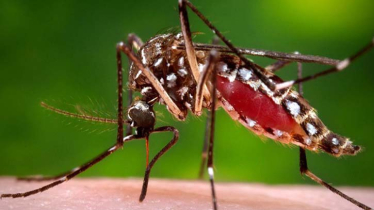
Photo: Collected
In a world where healthy eating and sustainable farming practices are gaining prominence, microgreens emerge as a nutritional powerhouse and an excellent addition to any diet. These tiny greens not only pack a punch in terms of health benefits but also offer a cost-effective solution for farming enthusiasts. This article will delve into the world of microgreens, their origins, health advantages, nutritional components, and how one can cultivate them in our country.
Microgreens are the young, edible seedlings of various vegetables and herbs, tracing their roots back to California in the 1980s. Far from accidental, their invention resulted from meticulous research aimed at maximising the nutritional value of plants in their early growth stages.
Harvested at around 1-3 inches tall, one week aged, these tiny greens offer an incredible concentration of flavour and nutrients. They often contain 40 times more nutrients than their mature counterparts, making them a popular choice for those seeking both taste and health benefits. Easy to cultivate at home, microgreens have become a trendy and versatile culinary delight.
These seedlings are rich in a bunch of vitamins including Vitamin C, Vitamin K, Protein, Carbohydrates, Fibre, Sodium, Iron, Selenium, Magnesium, Manganese, etc.
Due to the high nutritional value, microgreens are also referred to as "superfood".
Microgreens can boost the immune system. Packed with vital nutrients, including immune-strengthening vitamin C and antioxidants, these tiny greens offer a concentrated dose of health benefits. Incorporating microgreens into your diet not only enhances flavour but also supports well-being. It is a simple yet effective way to fortify your immune system.
Individuals with Type 2 diabetes struggle to control blood sugar, as their cells fail to efficiently remove glucose. Research on animals indicates that broccoli microgreens enhance insulin resistance, facilitating sugar transfer from the blood into cells.
Polyphenols are plant-derived compounds with antioxidant attributes. They offer numerous health advantages, and microgreens are rich in these.
Scientific findings suggest that polyphenols can enhance cognitive functions, such as thinking and reasoning, and potentially delay the onset of neurodegenerative conditions like Alzheimer's disease. Incorporating microgreens into the diet provides a natural source of these beneficial polyphenols, supporting overall brain health.
Microgreens, particularly the red cabbage variety, exhibit promise in mitigating heart disease risk factors like polyphenols. Their addition to a high-fat diet reduces body weight, triglycerides, and LDL (bad) cholesterol. Rich in polyphenols, microgreens, as antioxidants, are associated with a decreased risk of heart disease.
Brassicaceae microgreens, containing sulforaphane, offer health benefits, notably lowering the risk of certain cancers. Incorporating them into a balanced diet may help lower or potentially reverse cancer growth.
Antioxidant-rich fruits and vegetables, particularly those abundant in polyphenols, are associated with reduced cancer risks. Polyphenol-rich microgreens are anticipated to exhibit similar protective effects against various types of cancer.
Widespread iron deficiency contributes significantly to global anaemia rates. Numerous microgreens, such as lettuce and those within the Brassicaceae family, boast substantial iron content.
Research shows fenugreek microgreens as particularly iron-rich and surpasses other varieties. Incorporating these microgreens into the diet can offer a natural and potent source of iron, addressing the prevalent issue of iron deficiency and its associated health concerns.
Microgreens offer a convenient, healthy, and nutritious solution to those seeking a healthier lifestyle. Their versatility in cultivation methods makes them accessible to a wide range of individuals, from urban gardeners to traditional farmers. Incorporating microgreens into your diet not only enhances the taste of your meals but also ensures you are getting a nutrient-packed punch with every bite.
Messenger/Mumu








